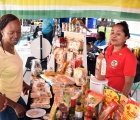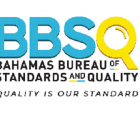NASSAU, The Bahamas – The Government is moving to regulate and control the importation and manufacture of tobacco products through the use of excise stamps and a system of mandatory registration of such products.
Minister of State in the Ministry of Finance the Hon Michael Halkitis moved the second reading and committal of the Excise Stamp (Tobacco Products) Control Act, 2013 in the House of Assembly on Wednesday, January 23, 2013.
“This Bill is intended to improve the administration of excise revenue related to tobacco products and to reduce the revenue losses due to smuggling,” Mr. Halkitis said.
The measure mandates, amongst other things, that any tobacco product imported into or manufactured in the country be affixed with a unique stamp, which evidences that the excise duties payable have been paid.
It also calls for enforcement officers to make random inspections to premises that sell tobacco products to ensure all such products have been affixed with a stamp, thus proving that the excise taxes due have been paid.
Products that do not have a stamp affixed will be subject to sanctions under the legislation, which includes fines, and prison time.
The legislation will also require registration for any importer and manufacturer of tobacco products except in cases where products are for personal use. And, registrants are to apply in the prescribed form and must meet eligibility requirements set out in the act such as being compliant with business license, NIB requirements amongst other requirements.
Under the Act, registrants will be required to apply for the purchase of excise stamps for the purpose of affixing them to imported or domestically produced tobacco products. The registrant will also pay the applicable tax before the issuance of stamps and the stamps affixed to the tobacco products will be evidence the taxes have been paid.
A registrant is required to maintain records in relation to excise stamps for a period of 10 years and upon the reasonable request of an excise officer, account for the stamps issued to him with penalties for non-compliance.
The measure further requires the stamping of all tobacco products manufactured in or imported into The Bahamas, with exemptions in place for small amounts and in the case where diplomatic privileges exist or when these products are being transhipped through The Bahamas.
Other provisions require that all producers and manufacturers of tobacco products be registered and that no equipment for the manufacture of tobacco products may be imported into the country or possessed, unless the person possessing such equipment is a registrant under the act is in possession of such equipment to manufacture tobacco products for personal use.
The Act requires registrants to cooperate fully with Excise officers and provide them with information and access to premises to carry out their functions.
Excise officers shall be stationed at all ports of entry.
“Smuggling of goods particularly as it relates to tobacco products and foreign manufactured beers plagues the country and inhibits the authorities collecting the revenue that is due,” Mr. Halkitis said.
“In addition smuggling being illegal and clandestine may also involve the illegal importation of weapons and illegal drugs. By cutting off the smuggling of tobacco by putting in place the proper enforcement regime, could very well reduce opportunities for smuggling other contraband,” he said.
In the case of tobacco products, it is estimated that $25 million per year is lost to smuggling. It is further estimated that with the effective implementation of an excise stamp programme, 80 percent of the lost revenue can be recovered.
“Therefore we believe that if our estimates are correct, we have the potential with this legislation to realise up to an additional $20 million annually.” Mr. Halkitis said.
He said he is advised that foreign made beers are another popular item for smugglers with an estimated annual loss in the millions of dollars.
In this vein, it is the government’s intention to eventually enact legislation that would address the smuggling of alcohol particularly of beers from the United States, Mr. Halkitis said.





